Interviews
Paula Carvalho, DGAV: “Industrial cultivation is all about fiber and seeds”
Published
3 years agoem
By
Laura Ramos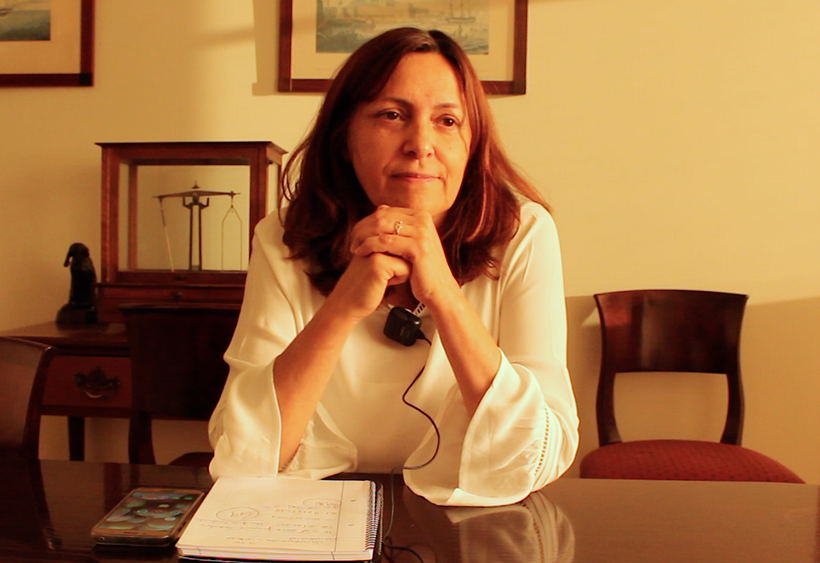
CannaReporter was at the General Directorate of Food and Veterinary Medicine for an exclusive interview with Ana Paula Carvalho, sub-director General of the institution. In a conversation lasting more than an hour, focused mainly on the industrial hemp sector, Cannareporter tried to clarify the many doubts that plague farmers who grow in Portugal. Paula Carvalho admitted that there may have been delays in responding to requests and even miscommunication, but she guarantees that she is available to dialogue with farmers. However, it leaves a very clear message: Industrial cultivation is all about fiber and seeds.
Does the hemp sector interest Portugal?
Yes No doubt. Hemp, in terms of plant species, is extremely well adapted to our conditions and is therefore an agricultural crop that is worth promoting. It already had some importance, many years ago, essentially for fiber. Now, we have other opportunities in terms of seed and oil production, therefore, a whole set of products for industrial, food and animal feed use. The demand is growing, and therefore, of course, interests Portugal.
How does DGAV intend to invest in this culture?
DGAV doesn't invest, does it? DGAV is a regulatory body and has a very defined competence in regulatory terms. As for the cultivation itself, as you know, we had the competence granted last year, by the Regulatory Decree 2/2020, which gave us the competence to authorize cultivation for industrial purposes and therefore it is the function that we are currently performing, the assessment of applications for cultivation for industrial purposes. Of course, we have other skills, namely in seed certification, but we still don't have any requests for seed certification and seed production (destined for sowing) in Portugal.
The last time we communicated, in August, by e-mail, you told us that in 69 applications for cultivation authorization, 22 were granted. What is the situation at the moment?
We have one more deferred, so the information I have is that we deferred 23, but we are talking about a universe of 49 farmers, in which some successively repeated requests, which were rejected or other requests. Therefore, we are talking about a universe of 49 farmers, of which 23 were approved.
49, not 69?
Farmers, at the time we responded by email, there were 69 requests, but some requests are repeated, so they are from farmers who repeatedly make the same request. Overall, we received requests from 49 farmers.
And why were the requests repeated?
On the one hand, it is a decision of the farmer, we grant and reject, for example, an application because the application did not fit the industrial use or it was a use that did not fit the regulations and powers of the DGAV. There were farmers who decided to change the purpose of what they wanted to cultivate and submitted a new request or others who had a plot and decided to present another plot, in another agricultural holding for cultivation.
We also had reports from farmers about delays in responses.
I don't see… the delays in the response, probably… it doesn't mean that there isn't, occasionally, some delay in the response, it happens, nobody is perfect, no entity is perfect. But many of the questions were because documents were missing from the files, information was missing, and DGAV never failed to respond to any request. And many requests even came through lawyers! We respond to requests, we respond to clarifications, obviously if the process is not complete, if documents that are required by law are missing, DGAV cannot complete the process. Therefore, in certain processes it took longer because we gave the farmer the opportunity to complete and there are processes that lasted until the final decision precisely because we did not have all the information necessary to evaluate the requests.
It happens to be curious, and he mentioned this too, that some farmers have lawyers handling the cases.
Incidentally, it is very surprising for us, how can a farmer with such a small area (many of them have less than half a hectare), to ask or approach the DGAV, present an authorization process for fiber cultivation, do it through a lawyer. It's not common, and obviously we don't stop responding, but it's not common for this to happen.
And why do you think this is happening?
I don't know, we have to ask each of the farmers who decided to hire a lawyer, I can't answer for them.
Perhaps because, for example, in 2017, the first hemp farmer was arrested?
In 2017 DGAV had no competence in cultivation. DGAV only had the powers to authorize cultivation in August last year, with Regulatory Decree 2/2020, until then DGAV did not have this competence, so I cannot comment on what happened before.
Although it was before, anyway this was the first of several seizures that have been happening, because there is some confusion between hemp and cannabis. There have been several recent cases of farmers who applied to DGAV and were arrested and crops destroyed. A protocol was signed between the entities, is this protocol ready?Let's do it by steps. Regarding this association with the arrest of these farmers and the request to the DGAV, I am obviously not talking about issues, about individual cases because that is up to each of the farmers and it is information between us and the respective farmer. But if farmers don't have a cultivation permit, then it's up to law enforcement authorities other than DGAV to do their job. Therefore, if they are authorized by the DGAV to cultivate and are duly authorized and provided with the necessary information, the police authorities recognize this authorization and control it as well. If eventually a farmer or field is found that is not authorized, it is up to the police authorities to act and DGAV does not interfere in this type of intervention. It is an intervention that goes beyond our competences.
But is the DGAV communicating requests that were not granted to the police authorities?
Yes, it is foreseen in the order that was published, therefore we inform the police authorities, the IFAP, of the granted and rejected requests. Therefore, it is a normal procedure between DGAV and law enforcement authorities.
Does this also happen in other types of cultures? Of having a communication to the authorities?
No, because, as far as I know, there are only two crops that are regulated with very specific legislation, which requires the notification of cultivation, which is the case of hemp and genetically modified corn - although for genetically modified corn there is not exactly a cultivation permit, there is a notification and then there is official control over the fields. In the case of hemp, the regulations impose an authorization for it to be cultivated. It is a regulation that, in practice, is something that happens throughout Europe in terms of hemp cultivation, it is not exclusive, it is not an exclusive regulation of Portugal. Each country has its own regulations, but practically all of them have specific regulations applied to Cannabis sativa.
In one of the most recent cases of detention of a farmer, which was Pawel, in Sertã, he said that he received a rejected request from the DGAV because he did not send an invoice for the purchase of seeds, but the seeds are certified at European level.
That's what we have to check. Our procedure, in fact, we did as soon as the Regulatory Decree 2/2020 was published, the day after the DGAV published on its website the procedures with the entire checklist of documents that should be delivered to obtain the cultivation authorization. One of the documents is the seed purchase invoice and the decree itself states that the farmer must keep both the seed certification labels and the seed itself.
Must save, not present.
But we understand that it would also be necessary to present it as a requirement, because if you have to keep it, you have to present it to a control entity, and we, in the evaluation of the process - and we also learned from the evaluation of the processes that we received -, we believe it is useful for the farmer himself send us this information, which may be useful. I give, for example, the information of cases that appeared to us that the seed packages themselves do not identify the entire seed. They do not identify. They are completely white, which is not normal. Because a bag of certified seed is usually packed with the brand of its respective producer. And one of the information that the farmer has to give us, which is mandatory, is the origin of the seed. He can't tell because the bag is white, so if you send us the invoice we can identify who the producer is and know if the label is German, or Finnish or something else, so it's additional information.
But doesn't that come already in the THC declaration?
No, because the THC declaration is another issue that sometimes causes a bit of confusion and it is useful to give this information as well. The THC declaration can be provided by two types of entities: the official entity, which is equivalent to the DGAV, which registered the variety in the common catalogue, or the entity of the country that certified the seed, which can be a completely different entity. The variety may have been entered in France in the common catalog and the seed may have been produced in Poland. And therefore, we accept that the THC declaration is made either by the country that entered the variety in the catalog or by the country that produced the seed. And sometimes these doubts also arise, asking who can issue the THC declaration, although this is what is in the ordinance itself and what is in the DGAV procedures, the country that registered the variety or the country that certified the seed.
Hemp growers who are members of CannaCasa complain, for example, about the requirement imposed by the DGAV to present a contract for the disposal of production…
No, we don't require any production outflow contracts, we require proof of fate. The ordinance states that the farmer must inform the origin of the seed and the destination of the production, to whom the production will be delivered. Sometimes what they send us is the name of a company and when we check the name that company has nothing to do with that economic activity. We then allow the farmer, who despite that company, apparently, based on the information we were able to obtain, has nothing to do with that activity, to prove that he will nevertheless acquire that production from the farmer. Therefore, we do not ask for a contract, in fact, we even accept purchase and sale statements. We don't ask for the contract, we don't want to know about prices or anything like that, because it's a private contract. When the company they refer us to is a company completely outside of what, apparently, is its activity, then we need proof that the destination is, in fact, that company, which will receive that material produced. The ordinance mentions exactly that, the farmer has to inform us of the destination of the production.
I happened to be reading the ordinance and that's not what I understood, by the way, in the production of medical cannabis, that's what they require.
There you have to have the contract and the approval. The paragraph is the same.
Does this mean that it is really mandatory to inform where the production is going?
The paragraph is exactly the same, it applies to both medical cannabis and industrial hemp, it talks about the stages in the development of the crop and the destination of production. The difference between medical and industrial cannabis is that then there is another line, which in the case of the first requires the contract. We do not demand, we ask for the destination of the production and we only ask for additional information when the recipient does not appear in the information as a recipient with an economic activity in that area. Therefore, we need some more information that actually proves that this is a destination that will actually receive cannabis for industrial purposes.
And why is it necessary to know all these details?
It's in the ordinance, it's a matter for the legislator. DGAV is here as an entity that must implement the legislation.
DGAV has 10 days to respond to requests, but there are reports that this time has been greatly exceeded.
I have already explained that our answer, and I can admit, I will not say of course that we have not exceeded the time in some cases... It could have happened, it happens in any service, nobody is perfect, but many of the delays are due - and I remember me of some processes – the lack of response (from the farmers). In fact, there were denials for lack of response. When we request that the presentation of the stages of crop development is missing, or that the declaration of THC content is missing, because it is in the law, DGAV cannot fail to request it. When it is not presented, which often happened, the rejections took place after I don't know how long, because we were waiting for the answer. And the answers either insist that they should not answer – and we explain why they have to answer – or there are questions in which we are clearly asked for cultivation permits to produce products that do not fit in with industrial hemp. And, therefore, we are not competent in this, there is another licensing framework that is not of the DGAV, and I hope that this year, which was a zero year of law enforcement, can allow farmers, on the one hand, to realize that there are documentation they have to deliver, so that in 2022 things run faster for both parties. Because here, too, there was a lot of difficulty, sometimes, in explaining why we need certain information. There were farmers who asked us about sharing seeds, we came to have completely different farmers and the seed lots were the same, it can't be.
Can't there be associations or cooperatives that share the seeds?
There can be no sharing of seeds.
Why?
There is a seed marketing legislation and marketing requires certified seed. Certified seed, sealed packages. Each farmer, for himself, must have his seed package closed and certified. Now, if the package was opened and 2 or 3 kilos were shared with each farmer, the farmers who receive those kilos cannot prove that they have the certification label and that they bought the seed.
And can the same packaging be carried over to the following year?
Yes, if it stays closed, closed. Imagine, I'm a farmer, I bought five bags, I only used four. One is closed. Now, if I used these bags, I opened them all, and the bags are open, I can no longer use them the following year, because the seed package has already been violated, it has been opened. And therefore, there is no longer any guarantee that the seed to be sown is actually from that lot.
The bags are 25 kilos of seeds, right?
It depends, there are bags of all sizes. We see bags of grams, which must have been a mistake, this type of bag must not be for fiber… even bags of 50kg, 5kg, 10kg, 1kg. There are several different sizes.
So what if a farmer buys a 5-pound bag and doesn't grow it all?
If you don't cultivate everything, you have to do something to the seeds: human food, animal food, you have to do something to the seeds. The following year you cannot present a bag that has already been used and is open. There is no guarantee that the seed that will be sown is actually that one, because what the ordinance says is that, annually, the farmer has to present the certified seed and the respective bag. In fact, in our procedure this is explicit, isn't it? That authorization is annual – there was also some confusion and we even received authorization requests in which the notifications for the same seed bag were already five years old. This is not possible, because the authorization is annual, not for five years and obviously the orders had to be returned. And so, there is indeed some information here that was not passed correctly. Perhaps we can also improve the information we transmit. We have tried to be as clear as possible in the procedures we publish on our website. The concierge already is, but we thought it best to clarify. Then we made another clarification in our procedures because we understood that there were farmers who were also somewhat confused regarding one or another aspect, and therefore we tried to improve the procedures with this information. We are even thinking of creating some FAQS, some frequently asked questions, in order to clarify some questions regarding industrial cultivation, which has a very limited domain. Industrial cultivation is all about fiber and seeds.
But to get the seeds the plants have to come into flowering. What is done with the flower?
Nothing, does nothing. If it produced the seed, in the harvest of the seed it destroys the flower, of course, isn't it? If you are harvesting the seeds, the flower is automatically destroyed by harvesting the seed.
Flowers contain CBD, which we know is very beneficial for health. How does a person who produces something that he knows he does well…
There is another way of producing, there is a specific licensing. You can produce Cannabidiol with an authorization from INFARMED, it has a completely different framework.
Is there only one medical framework for CBD?
Yes, the therapeutic is the only one that currently exists.
In Portugal?
No, all over Europe.
But CBD can be produced in some European countries.
In terms of food, and we are limiting ourselves to food, which is the competence of the DGAV, the competence of industrial purposes, CBD is not authorized as food. It only has one possibility, although the court has considered that it may have a food interest, as long as it complies with food law. And currently, CBD does not comply with food legislation. It can be produced and placed for therapeutic purposes and for purposes other than food, in Portugal and in all European Union countries, with a framework of placing on the market and production not for food purposes, but for therapeutic purposes. Because food legislation is the same for the whole of Europe, it is not Portuguese legislation, it is European legislation.
The European Supreme Court of Justice has already ruled, for example, on the case of a CBD vaporizer and has been very clear, stating that member states cannot ban the commercialization of CBD in the European Union.
If the legislation is complied with. They should read the rest of the sentence and the court ruling. What the court found was that CBD can be considered a food as long as it complies with food legislation. That was the court's decision. You have to read the full judgment. And if you go and see – and DGAV answers this question every day, it's almost a million-dollar question – you don't believe in DGAV. And we have already sent the links and everything to the European Commission, to see what is there, and to verify that in the catalog of new foods cannabidiol is considered a new food, because there is no history of consumption until 1997. authorized to be placed on the market as food must be subject to an assessment that is carried out by the EFSA (European Food Safety Agency), with the collaboration of the Commission and the member states, and enters the European catalog of novel foods. I recommend checking the status of cannabidiol in this catalog, you can see that there is a red cross there, which means “not authorized” for food, still. We know that there are applications for authorization as a food and that they are being evaluated, but while CBD is not included in the catalog of novel foods, it is not authorized at the community level. Neither DGAV nor any other EU country can authorize it for food purposes.
Basically, it's the theory of legislation...
It is the practice of legislation. The legislation says this and there are several products… in fact, some insects have now been authorized for food that followed the same procedure. Several new foods are authorized over time, precisely with this regulation. It is not a theory, it is the application of community regulations.
What I wanted to say in terms of theory, is that in practice, if you go to one of these cannabis stores, which already have about 100 open in Portugal, you can find coffee with CBD, chocolates with CBD…
This is not DGAV's problem, it is ASAE's problem. I know that ASAE has also carried out its control and it is a matter of market surveillance, which is not the responsibility of DGAV, it is the responsibility of ASAE, which has also done work in this area.
But even CBD oils for therapeutic purposes, children with epilepsy, I know it's not your competence, but you are aware that people…
Just look at your website, of course it exists. But the inspection authorities have inspected and there are cases of apprehensions. By the way, there is for sure, because practically every day I receive an email from a person who has seen CBD seized in their store. It was an apprehension made by ASAE, I know that ASAE does this type of action, but it is not the responsibility of DGAV. The competence of the DGAV is, as I said, limited to fiber and seeds for human and animal consumption.
And so your suggestion, in essence, is that the CBD flowers produced to obtain seeds are destroyed.
I don't see how they are destroyed. I am a farmer and I produce seed, I harvest the seed, the seed is a phase after flowering, right? We have female flowers, male flowers, pollen comes out, fertilizes female flowers, female flowers produce the seed, I harvest the seed. If I reap the seed how do I get the flower? Because I harvest the seed, it is a phenological phase after flowering. Therefore, many farmers have asked: “Can I produce flowers?” — No, it cannot produce flowers! “So what do I do with flowers?” "So, if you're producing seed, how are you going to get the flowers out of the field?" You have to produce the seed and to produce the seed you have to have the flowers, if I take the flowers I won't produce seeds with absolute certainty, because the flowers don't come from another part of the plant. Therefore, seed production implies, in practice, that there are no flowers in the flowering stage that I can remove from the field. Because they are male plants, they don't have flowers, as you know, only the female ones do I have to let them produce the seed, because that's my purpose, to produce seed. How am I going to get the flowers from the field? It makes no sense, otherwise how am I going to produce seed?
The European Commission recently created a specific page just for hemp, I don't know if you've seen that page.
Already, we have participated in a lot of Commission meetings, in workshops, recently there was an EC workshop with major European stakeholders on industrial hemp, in which there was a lot of talk about CBD and other possible uses of hemp. In fact, there have been great discussions at the international level, not just at the EC level, but I give an example. DGAV is responsible for the seed certification part, seed certification for sowing. And at the international level there are rules to certify seed Cannabis sativa, as there are corn, potato, are the rules applied to the species. It is identified, for example, that there are markets in Canada or Switzerland, that feminized varieties or the legislation on seed production, seed certification is not adequate for the production of this type of varieties. And we have followed this, at the level of international discussion, even to create seed certification standards for this type of varieties that are beginning to appear, hybrids. The subspecies of Cannabis sativa, plants that are not sensitive to photoperiod, plants that are feminized, all this implies a technical discussion on the adequacy of the legislation, in this case the part of the legislation on seed production that has to adapt to this new reality. Therefore, these discussions, both at the level of the commission and at the international level, are at this very moment, it is an almost mandatory agenda item, in matters of seeds and propagation of materials.
In terms of sustainability, the EC website strongly emphasizes the role of hemp, as an alternative to producing plastic or paper, for example.
Yes, of course, bioplastics. In fact, we have farmers in Portugal, of these requests that are granted, at least one that I remember, which is precisely producing fiber for the production of bioplastics. Which is fantastic, and we have a very interesting universe in terms of culture for this industrial purpose.
And how can the local economy be revitalized, so that small farmers can participate in this process?
I think that, on the one hand, there has to be some association of farmers, because it seems difficult to me, given the size of the farmers – and we are talking about this small sample of 49 farmers, who are the universe with whom we interact this year – because great part are extremely tiny areas. Very small, we are talking about a few hundred square meters. If we are talking about industrial hemp, fiber and seeds, these areas are unlikely to be competitive. And therefore, there is a need for an association of farmers, for there to be a greater organization of production, so that we can go to the market with some dimension. Because, for example, it seems strange to me that, if I'm producing seeds, I don't have mechanization to harvest the seeds and I have to collect the apexes of the plants at the time of practically manual seed production. Therefore, there are equipment, machines that harvest, harvesters, that enter the fields and harvest the seed directly, but for that there needs to be dimension. And so, obviously, if we want to have small productions, very focused on local products – and we have cases of two or three farmers who are making very small areas, but to produce flour for local bread – these are very interesting market niches, which should be supported and that must continue, but if we really want to grow in this culture, we have to have a dimension for it. I think it would be important to have mechanization in terms of harvesting plants for fiber, and in terms of seeds, for industrial purposes, for human or animal consumption, to take a step forward. Because I see with difficulty that we can be competitive with these very small areas that have appeared for this purpose. We believe it could be because they are experimental phases, to see how the varieties adapt, or so on, but we have to take a bigger step, because I don't see how they can be sustainable in this global market.
He spoke of the importance of farmers joining together, but just now he said that associations cannot share seeds.
But they are different things. The seed certification legislation does not allow sharing, because there is a definition of commercialization and commercialization implies the transfer, for consideration or not, of the seeds. And this legislation has to be applied, therefore, we cannot even authorize the farmer to distribute seeds, because then he had to enter the commercialization circuit and have the seeds certified. What we sometimes say is for farmers to buy one-kilogram packages. There is no need to buy 25kg packs, because there are 1kg packs. In the seed legislation there is the figure of a seed conditioner in which large packages can be divided into small packages and therefore there are packages of various sizes on the market. A farmer does not need to buy 25 kg if he is going to sow a kilo, he can buy less seed for that production. Other situations that we also found curious, is a farmer who has a hectare and is going to make fiber, and tells us that he is going to sow 100 grams, when he bought 50 kg. We don't understand how someone makes fiber with 100 grams per hectare. From an agronomic, technical point of view, this is almost impossible to do, or else the fiber is of poor quality. The distance between plants is so great that the fiber quality is miserable because the seed to fiber density is much higher. We even suggested, because that seed that was bought in excess will not be able to be used for the year, why is it not grown from an agronomic point of view, which is the most suitable way to produce fiber, and uses the whole seed what did you buy? Therefore, there were extremely curious situations, which also show, in some way, some farmers who appeared for the first time in this market and who are far outside of what are good practices for the cultivation of industrial hemp.
Have a large number of foreign farmers?
We do have people who say they don't speak well and who ask for support from other people to talk to us, because they themselves don't understand Portuguese well.
Is it possible then that there was some communication difficulty?
No, no, I mean, because there were farmers who said: “no, I'm going to sow with a compass of two to three meters per plant, for fiber”. From the fiber quality point of view, I doubt it will have any quality with an orchard compass, it is not, two to three meters per plant.
Isn't it also because some farmers are still making experimental plantations?
But for that very reason, if I want to make fiber, I'm not going to experiment with that sowing density, because I'll have bad results from the start. For fiber, the ideal would be 50 to 100 kg, depending on the variety. If I'm going to sow 150 grams I'm not experiencing anything, because I'm not going to have anything good in terms of fiber. And therefore, it would also be important to have this type of collaboration between farmers to transmit the good agronomic practices of driving the culture. If I want to produce fiber, or I want to produce seed, there are agronomic techniques that maximize this production. Obviously, if I don't have irrigation, if my soils are poor, I have to take this into account, but they are not, as there were situations, grams per hectare. From the point of view of compatibility with fiber production, we were therefore a little concerned, because in fact we do not see that it is feasible to obtain fiber with that seeding density.
Regarding land ownership, we became aware of a case in which the farmer did not own the land…
It's not a matter of ownership, it's a matter of the beneficiary's identification being on behalf of the farmer. I can rent land, nothing stops me. The documentation that is requested, the P3 and the identification of the beneficiary, must be in the name of that farmer, it cannot be in the name of someone who is not in the process. It is not a matter of land ownership, they can rent, they can do whatever they want, but the information has to come in the name of the farmer who is applying for the cultivation permit.
What is the legislation that clearly states the ban on producing and marketing all parts of the hemp plant?
Look, on a hat, it's the Single Convention to Combat Drug Trafficking that has a very concrete definition of what cannabis is. And cannabis...
Industrial hemp is not a drug…
I'm not saying it's dope, you asked me a question and I'm answering it. You asked me what legislation prohibits the marketing of the entire cannabis plant, including the flowers, and I am telling you that the Single Convention to Combat Drug Trafficking defines cannabis, and the definition of cannabis is the entire plant containing the flowering tops, whether or not they contain seeds. It is a definition of cannabis that is regulated for the purpose of combating trafficking. It excludes fiber and seeds from the definition of cannabis, and therefore, if a farmer says: “I want to sell the whole plant with the flowers and everything”, the only information that DGAV can say is exactly this: if I am producing fiber, I cut my plants and am supplying the fiber to produce fiber; if I'm producing seeds, I'm not going to cut the flowers, we've already talked about that, because I need the seed. If I cut the flowers, I won't have the seed.
In the case of these arrests, if an analysis check detects more than 0,2% THC, what is the legal procedure to follow?
This is a matter for the police authorities. I repeat that DGAV is responsible for authorizing cultivation, specifically industrial. There is a community procedure that determines the obligation to determine the THC content, because industrial cultivation is limited to 0,2% THC. And we know that under certain growing conditions, soil, temperature, the THC content of certain varieties goes up naturally, because plants aren't rocks, right? They are living, biological entities, and that is why there is a community regulation that determines the obligation to control the THC content of industrial hemp crops. This for what? For us to evaluate the varieties that are cultivated and if that variety, systematically, has values above 0,2%, we have to prohibit the commercialization of the seed of that variety in Portuguese territory. This happened in the United Kingdom and, recently, Poland also banned it, I think it was Finola, precisely because, as a result of inspection, the variety systematically had values above 0,2%. Therefore, it is a procedure that is carried out at Community level by the control authorities. What is the role of DGAV in this? If there is such a situation, reported by our control entities, as this methodology is provided for in the control regulation, the DGAV is the authority that goes to the EC to say that variety x had, for two consecutive years, levels above 0,2% of THC. A Commission decision is published authorizing Portugal to ban the seed of that variety in Portuguese territory, because that variety, under our conditions, systematically rises above 0,2. This is something that happens quite often with industrial varieties. Therefore, this is the role of the DGAV, receiving this information and, if it happens, determining the ban on the commercialization of that seed in Portuguese territory.
The Czech Republic will increase THC levels in industrial hemp to 1%. I repeat that the levy of 0,2% is a Community regulation. Therefore, the Czech Republic has to comply with the Community Regulation. What has been discussed now, in the reform of the Common Agricultural Policy (CAP), is to increase from 0,2 to 0,3%. And therefore, this is a community limit, there cannot be a country saying “I want 1%”. The regulation is directly applicable in the countries and when we are talking about industrial cultivation, that THC content is applied to the 27 member states.
And wouldn't it be better to actually increase the THC level?
I don't comment on that, I have no opinion. I'm not an expert to know what the consequences would be of increasing from 0,3% or from 0,2% to 1%.
It is a very residual value…
Yeah, but I don't speak up. I don't want to be giving an opinion on matters that I don't know, what impact that would have on human health, I have no idea, because we're talking about industrial hemp, right? I know that Parliament proposed the increase from 0,2% to 0,3%. I believe that this will be approved in the next CAP regulation, which regulates the Common Organization of Markets, and that will be the value that the regulatory authorities will have to take into account in their control.
But is it easy for a plant or variety to go beyond this limit?
Very easy. That's why there is this control, because it's the distinction... one thing is illegal, and we're not talking about illegal, we're talking about cultivation that is authorized with authorized varieties and that under certain conditions of irrigation, light, Fertilizers react to external conditions and increase certain chemicals, including THC. This is known, it's nothing extraordinary in the cultivation of hemp, that's why there is this control of industrial hemp, because the regulation dictates the limit of 0,2%. Varieties may be entered in the Community catalog by France, Poland, the Czech Republic, etc. and for that, field trials are carried out to test various behaviors, fiber production, seed production, etc. From there, that seed can be sold or traded throughout the European Union. However, a variety that has been selected or that has been tested in the French climate and soil, if placed in our Alentejo, may behave differently. This happens with cannabis, it happens with corn, with potatoes and with all plants. And under certain conditions the cannabis sativa plant can actually raise the THC content. This is unavoidable. Bigger or smaller climbs, but it's unavoidable. Therefore, a farmer who is making hemp and everything is in order cannot be blamed if the crop reaches 0,25 or 0,3%, because we know that this happens and that the farmer cannot control it. Of course, if I know how to control the crop, I can encourage this increase myself, with cultivation techniques, but what is the interest of a farmer, who is making fiber, to promote this increase? There is no interest, what he wants is to take fiber and seeds. Therefore, he is not interested in this type of production.
And what can happen if the farmer has 0,4% on a plantation?
I cannot answer you, because we are not the controlling entity. Regarding the issue of variety, this is the situation that I have already explained to you. If a certain variety goes up systematically, the DGAV is the national competent authority for seeds, it can request the banning of that variety in Portugal.
Therefore, the stems and seeds do not have THC.
No, the seeds don't, that's why the tests are done on the flowers.
But flowers are neither marketable nor usable, so to speak. So what is this control for?
This will have to ask the legislators of the regulation of the Common Market Organization, which was not the DGAV. DGAV does not intervene in that regulation. It is probably to separate an illicit culture from a non-illicit one, because we all know that in an illicit culture what do we want? We want THC, we want cannabinoids, we want it all. Probably, it was for that reason, but DGAV did not participate, nor does it participate, in the meetings to establish common market standards, we do not follow this in detail.
Lately, in these arrests and seizures of farmers who were growing hemp, there is a lot of confusion between THC cannabis and industrial hemp. Why does the GNR choose to completely destroy the plantation?
There is a… this is also important for you to convey. If you look at it carefully, the legislation for the control of the two plant species that are subject to control, which is the papaver somniferum and cannabis, there are no THC levels mentioned there. There is not. The only legislation that refers to the maximum content is that of industrial cultivation, otherwise there are no THC levels, it is the use that is given to the plant. Obviously, if the THC levels are 30%, we could be talking about a drug trafficking crime, or if it's 1%, we could be talking about a fine or a sanction… I don't know, because we're not we are the entities responsible for this type of control, it also depends on the level of infringement that is detected. The issue, and I say again that the police entities are sovereign in their activity, is that those crops are not authorized and the legislation determines that you must have one of two: either an Infarmed license or a DGAV authorization. If the crops are not authorized, it is up to the police authorities to determine what to do with that field and it is not the DGAV that determines this, it is the courts, the Public Ministry, it is the control entities.
But does DGAV inform the GNR or the PJ that a certain farmer is not authorized?
Of course, I've already stated that, yes. We inform the authorized and the unauthorized, we inform both the IFAP... in fact, if you see it in the dispatch, it even says that the DGAV informs the IFAP of the approved and rejected, and we inform all the police authorities.
In other words, when the GNR goes to an industrial hemp plantation, they should know from the start that it is a hemp plantation and not a cannabis plantation, but…
But I say again that the GNR, by the way, anyone looking at a cannabis plant can't tell if it's hemp or it's cannabis. I mean, unless you only see female flowers, then it's weird, isn't it? A field with only female flowers to produce seed will seem strange, because male flowers are needed, isn't it? Now the question here, and I come back, is just whether the field is authorized or not authorized. If you don't have a cultivation permit, you can't cultivate. And then the police entities will do their investigation, the instruction of the process that they want to do. You can only grow hemp, c, with an authorization, either from DGAV or Infarmed. If there is no authorization, the fields should not exist. And it's not a question of being medicinal or being hemp, it's c not authorized for cultivation.
Yes, but my question is, if the GNR knows, if it has been informed by the DGAV that this farmer has made an application, but is not authorized, the plantation is completely destroyed, and the farmer…
I don't know, I have no idea, in fact, I know because of your news, just because of your news, and sometimes I receive requests for information from the courts, because I have no idea, it is not the DGAV that determines the actions of the entities cops. This should ask the law enforcement agencies and not the DGAV.
My question was, how do you see this situation for a farmer?
I think that the farmer, and then, as a public administration and responsible for a regulatory entity, if a farmer is not in line with the law, and if the law determines that he must have an authorization and he does not have it, I do not think that supervisory authorities should ignore this situation. Now, what do control entities do? These are processes that only concern them, and must have a whole procedure in legal and legal terms that they must comply with. Therefore, it is not up to me or the DGAV to comment on the decisions and actions of the control entities and the police, that is up to them, not to us.
Right, but you are aware that these farmers are being treated as if they were drug dealers, and they are accused of drug trafficking.
I won't talk about it, don't make me talk about it. I don't want to talk about it, because I've said several times that the DGAV has a very specific competence to authorize cultivation. Therefore, the actions that the police entities determine must have been determined for a few reasons, one of them, because probably, and I know from the news you make out, that they are farmers who are not authorized to cultivate. They are not authorized for cultivation, the fields should not be cultivated. The law is clear. If they want to cultivate, they have to subject themselves to legal consequences. If the police entities intend to act in one way or another, there is a legal procedure that is up to them and not to the DGAV, so it is not worth continuing to talk about this situation here.
But there are farmers who, in September, were still awaiting approval from the DGAV…
I'm not going to talk about specific cases, I shouldn't talk about specific cases, I've already mentioned this to you, because there is respect for the confidentiality of the DGAV and the respective farmer. Therefore, each process should only be discussed with the respective farmer. The processes that were waiting would probably be incomplete processes, which did not have complete information. We also received cultivation processes in September and others that came in at the end of August, incomplete, without information, without the P3, without the basic information.
But there were also requests that arrived in March and that only in July or August…
And they were perhaps rejected because after so long waiting for additional clarifications and the delivery of additional documentation - namely I remember a case of the THC content, of a variety that was never delivered -, DGAV cannot grant, as is obvious. So there is a message here that I would like to convey, and it is a little shocking to see, just yesterday there was news against the DGAV… The DGAV is not against the farmers!
It wasn't us, was it?
It's on your website, I saw it yesterday. They complain about the DGAV systematically, they even asked for meetings, which we don't know where the requests for meetings are, because we are happy to meet. Now, what I don't accept is that they book me a meeting with a link and don't ask me if I'm available on that date. I have my calendar, don't I? And that I do not accept. In fact, I have already received farmers here who came directly to talk to me and we have no problem meeting. We even met by videoconference with some farmers.
So is it available to listen to these farmers?
Of course, it's obvious. Now, provided, of course, we're available. The conversation I'm having with you today, I'm happy to talk to the farmers. Now, farmers cannot want the DGAV to somehow circumvent our competences and issue an authorization. I received questions, “I notify you to allow me to produce flowers”. DGAV cannot authorize the production of flowers, we do not have that competence! Producing flowers is to extract CBD, which is not a competence of DGAV. And there are companies, as you know, precisely producing flowers for CBD, and they have a framework. You can do it, nobody forbids it. In fact, it is quite interesting that some farmers who throughout this time have been asking us for crops that do not fit into industrial cultivation, are now actually cultivating with Infarmed. This is very interesting, because it shows that, in fact, they were willing to take that line and that they invested in that line. Now, you cannot think that the DGAV will have to authorize this type of crops, because it is not our responsibility to authorize.
Either way, it's a totally different investment.
Yes absolutely yes. But if you look at it, the cultivation authorization fee that was stipulated for any cultivation was three thousand euros for each evaluation and it was the DGAV that proposed reducing it to 50 euros in the case of industrial cultivation. Otherwise, we were all paying three thousand euros! Therefore, and it is a pity that these farmers criticize DGAV so much, perhaps they are not aware of this type of actions that DGAV has been taking over this time.
Isn't it also a miscommunication?
Maybe, maybe… that's why it's important to be here talking to you, maybe it is, I recognize that, maybe it's this lack of communication that there has been, probably. Over time, 2018, 2019, the attack on DGAV, DGAV was the entity to be slaughtered, because we did not authorize cultivation… and when we said “we do not have the competence to authorize cultivation, where is the law? ” On what basis did DGAV authorize cultivation?
Was there any disagreement between the Ministry of Agriculture and Infarmed?
No, there was absolutely no disagreement, we articulated perfectly with Infarmed, with the control authorities, we managed to talk, we managed to articulate the procedures. There was no disagreement. Maybe there was a little lack of communication to the outside, maybe that was it… this lack of communication.
But everyone was complaining about an alleged ping-pong game between DGAV and Infarmed…
Of course, but it was enough to imagine that, if the DGAV had powers, then why did Regulatory Decree 2/2020 come out, assigning powers to the DGAV, if it already had them? It didn't make much sense, did it? Therefore, we wanted, in terms of the Ministry of Agriculture – and it is also said that the Ministry of Agriculture is against cannabis, against hemp… from medical cannabis cultivation to industrial cultivation, because it was all in the same package.
Will the Ministry of Agriculture support hemp cultivation again?I don't know, because this is part of the discussion on the new CAP strategic plan and I don't know in detail what aid will be linked or not linked to cultures.
But there was already support, wasn't there?
There was support that was paid to the industry. The farmer produced the hemp and the industry that received the plant for fiber received an aid amount, which somehow later reflected that aid on the farmer.
How can you prevent farmers' investments from being lost, if they end up being destroyed and criminally prosecuted, etc?
I think it's being attentive. You have to read carefully, because there was a lot of confusion there between what industrial cannabis was, cannabis for other purposes... , and take a step safely. “I really want to produce fiber”, “I really have an industry that will receive the fiber”, because whoever produces fiber has to produce, I think, with some dimension, in order to supply an industry. I remember that, a few years ago, there was a Portuguese company that made those panels for highways – because of the noise, hemp fiber is used to dampen the sound – that avidly sought out farmers who produced fiber to be able to build the panels. , and there was not. Or if there was… at the time I don't think there was anyone. But there has to be dimension to supply this type of industry, it's not with an area of square meters, it has to be with some dimension. And then, there must be processing industries, because I cannot extract the fiber on my farm, I have to deliver it to a processing industry that extracts the fiber for me, unless I make fiber in an artisanal way for those very local, very artisanal markets. , and that's okay too. But if I really want to invest those thousands of euros in irrigation and all that, then I have to think where is the fiber transforming company? If I'm going to transport my fiber to France, the transport cost is x, and therefore I have to do the math, if it's worth the investment, given that I don't have manufacturing industries in Portugal. And therefore, this is something that every farmer, whether in this field of hemp, or in any other field of agriculture, has to do, this study, this evaluation before making the investment. But this is in all areas of agriculture, not exclusive to hemp, is it? If I'm going to produce apples, I also have to know who I'm going to deliver the apples to and what apples I'm going to produce, what my market is or if I'm just going to do self-consumption. I have to know what I'm going to do with the culture. Therefore, the farmer has to prepare himself before investing, he has to think carefully about what he is going to do.
Transformation is not just a problem for Portugal...
There are countries like Hungary, Germany, France that have a strong industry. And therefore, there may be a growing interest, they are natural fibers, but for that there also has to be someone who buys and who processes them. So, if we have potential fiber growth here and we don't have anyone to deliver it to, if we have to transport it to France, only the cost of transport is high. We have to assess that, don't we?
When is a proposal to change the framework for hemp different from cannabis according to the table of prohibited substances in the annex to the drug law?
It is not, at all, a DGAV matter. We do not interfere with this legislation, the definition of cannabis has other issues, such as the issue of product traceability… but I don't want to comment on that.
Some people also talk about cross-pollination. Is this something that is worrying medical cannabis growers?
I don't know, I don't follow medical cannabis, which must have a completely different form of cultivation than industrial cannabis. From the start, they will be using female, feminized, clones plants, so they are completely different realities. In the case of industrial cannabis, the issue of cross-pollination does not arise, because pollen must be crossed with plants, so I do not comment on the production of medicinal cannabis.
But do you think it's important that rules are defined, such as safety distance?
For the production of certified seed, which farmers buy, there are rules of distancing, precisely to avoid cross-pollination. This happens in maize, which are 200 meters away, in sunflower, 500 meters. Precisely to guarantee that the seed production field maintains varietal purity and there are rules for distancing fields to produce seed, this is perfectly defined in the law, in the Decree 47, in the production of certified seed, which is bought in closed packages, with official labels. To produce this seed, to guarantee the purity of the variety, that the variety is, for example, Finola or Fedora or any other, the multiplication fields have to be isolated from other fields of the same species, precisely to avoid cross-pollination. I don't know by heart how far cannabis is, I gave the case of corn and sunflower, but in industrial hemp I don't see this as a problem, because in industrial cultivation certified seed is sown and harvested, there is no next generation.
____________________________________________________________________________________________________
[Disclaimer: Please note that this text was originally written in Portuguese and is translated into English and other languages using an automatic translator. Some words may differ from the original and typos or errors may occur in other languages.]____________________________________________________________________________________________________

What do you do with €3 a month? Become one of our Patrons! If you believe that independent cannabis journalism is necessary, subscribe to one of the levels of our Patreon account and you will have access to unique gifts and exclusive content. If there are many of us, we can make a difference with little!
-
Laura Ramoshttps://cannareporter.eu/author/partner/
-
Laura Ramoshttps://cannareporter.eu/author/partner/
-
Laura Ramoshttps://cannareporter.eu/author/partner/
-
Laura Ramoshttps://cannareporter.eu/author/partner/
Related News
-
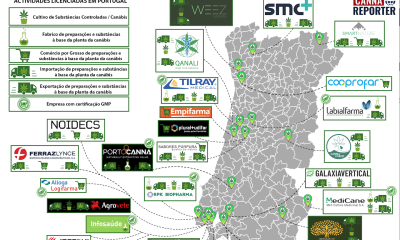

Portugal has 34 companies licensed by Infarmed for activities with cannabis. 11 are EU-GMP certified
-
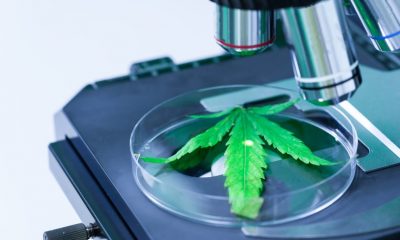

American Testing and Materials Association approves new standards for cannabis industry
-
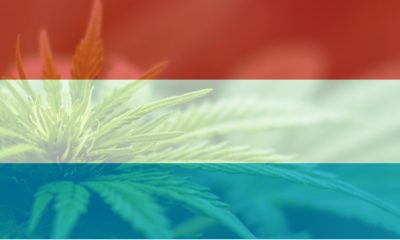

Luxembourg prepares to legalize all-purpose cannabis
-
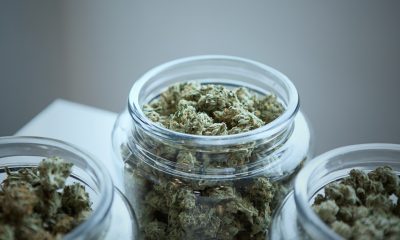

France: Pandemic raises cannabis prices on the illegal market
-
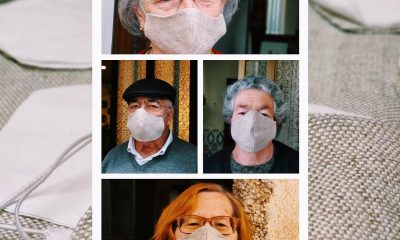

DopeKicks offers cannabis masks in Portugal
-
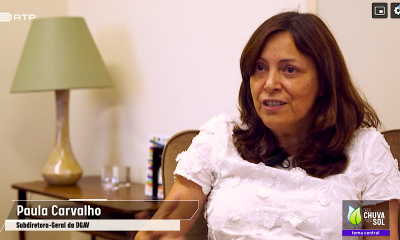

ACCIP reacts to DGAV statements on the RTP2 program “Make it Rain, Make it Sun”

Mais recentes


Álvaro Covões, who acquired land from Clever Leaves, says he has “no interest in growing cannabis”
At the beginning of April, we reported that Álvaro Covões, founder and CEO of 'Everything is New', had purchased the land where he was located...


Portugal's regulatory advantage in the cannabis industry
In the dynamic landscape of European cannabis cultivation, Portugal has emerged as an interim leader. Although it shares many natural advantages with...


ICBC Berlin shines again. It's the beginning of a new era for the cannabis industry in Germany
ICBC Berlin was the first major international cannabis conference to take place after the legalization of adult use in...


USA: Mike Tyson products recalled for mold contamination
California authorities have issued a mandatory recall notice for two products from Mike Tyson's cannabis brand,...


4:20 is coming and there are celebrations in Porto and Lisbon
The date for celebrating cannabis culture is approaching! This Saturday, April 20th, is the day when...


Paul Bergholts, alleged leader of Juicy Fields, detained in the Dominican Republic
Paul Bergholts, the alleged leader of the Juicy Fields pyramid scheme, has been detained in the Dominican Republic and will be subjected to...


Cannabinoids reveal promising results in the treatment of Borderline Personality Disorder
An investigation carried out by Khiron LifeSciences and coordinated by Guillermo Moreno Sanz suggests that medicines based on...


Juicy Fields case: 9 detained by Europol and Eurojustice. Scam exceeds 645 million euros
A joint investigation conducted by several European authorities, supported by Europol and Eurojust, culminated in the arrest of nine suspects...


Regular cannabis users may require more anesthesia during medical procedures
Regular cannabis users may require more anesthesia during medical procedures to remain sedated compared to...
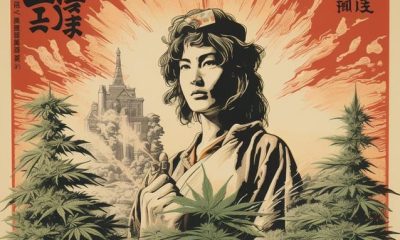

The future of CBD in Japan: How legal reforms will shape the market
Late last year, Japan took a big step towards cannabis reform after approving...







